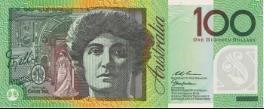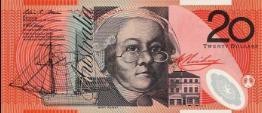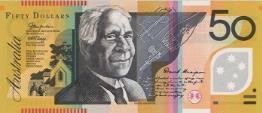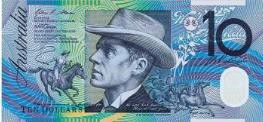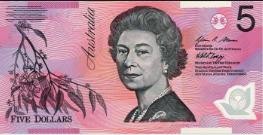Student Life in Australia
A country full of opportunities!
ETEA has everything you need to get the most out of your study, with modern and fully-equipped locations with excellent libraries, lecture theatres and training facilities to help you get job ready.
Although we want to make sure you enjoy it too. To ensure you make the most of your experience here at ETEA, please find some helpful information to guide you through your study journey, such as the pre-departure checklist, support services, and an events hub to make sure you don’t miss a minute of action happening at your campus.
Police
In Australia, the police force is made up of men and women who, when in uniform, wear dark blue, light blue and white. The police are employed by state and territory governments and are trusted professionals who are approachable and will assist with questions or concerns about your safety while in Australia.
To find your local police station, refer to the website for your local state.
Adelaide, South Australia https://www.police.sa.gov.au
Melbourne, Victoria http://www.police.vic.gov.au
Perth, Western Australia https://www.police.wa.gov.au
Sydney, New South Wales https://www.police.nsw.gov.au
In an emergency call 000
Non-emergency police attendance 131 444
Crime Stoppers to anonymously report suspicious behaviour or crime 1800 333 000
Ambulance
The ambulance service in Australia is an emergency service. Ambulances are operated by highly trained paramedics who administer emergency health care and transportation to hospital.
People with Overseas Student Health Cover (OSHC) will usually be insured for the cost of emergency Ambulance attendance but you should contact your OSHC provider to confirm. Ambulance-only insurance can be purchased directly from your local State or Territory ambulance service, which will provide insurance for the cost of emergency ambulance attendance nationwide for approximately $100 AUD per year.
Ambulance attendance for people without insurance can cost between $500 -$1100 AUD. Ambulance paramedics are a highly respected profession who provide lifesaving services to the community. Violence or aggression toward paramedics is not tolerated and will result in harsh penalties.
In an emergency call 000
More Information can be found by visiting your local state ambulance service website
Melbourne, Victoria https://www.ambulance.vic.gov.au/
Adelaide, South Australia http://www.saambulance.com.au/
Sydney, New South Wales http://www.ambulance.nsw.gov.au/
Perth, Western Australia https://www.stjohnambulance.com.au/ambulance-and-health-services/metro- ambulance-service
Fire
Each State and Territory of Australia has a metropolitan fire service (MFS) that services the greater city area and a country fire service (CFS) that services the regional and remote areas. Fire services attend emergency and non-emergency fires, gas leaks, chemical spills and major motor vehicle accidents.
In an emergency call 000
SES
The State Emergency Service (SES) is an emergency and rescue service that provides emergency support in the event of natural disaster and accidents. Most state SES staff are volunteers and are on-call 24 hours a day, 7 days per week. In the event of major flood or storm damage call 132 500
Poison
Australia has a national Poisons information line that will give information and advice about poisons of all kinds including animal or insect bites and stings, plants and organic matter, chemicals and cleaning products and medications.
Poisons Information line 13 11 26
In an emergency call 000
While Australia is a relatively safe place to live and visit, the following are some simple precautions you can take;
- Lock the doors and windows of your home when you are home and when you leave the
- Keep your possessions close to your body and don’t leave bags or items
- Avoid keeping your wallet or purse in the back pocket of your pants or the front pocket of a backpack that can be accessed by
- Leave valuables somewhere safe. This includes your passport, important documents, electronics (Laptop/tablet), and
- Avoid carrying too much cash. ATM’s and EFTPOS facilities are readily
- Always take a charged mobile phone with you when you leave the
- Never hitch hike and do not accept rides from people you do not
- If possible, avoid walking alone at night in the
- When catching public transport, wait in well-lit areas and, sit near the driver or
- When catching a taxi or Uber, sit where you are comfortable. It is common to sit in the front or the
- Never leave your drink unattended, alcoholic or
- Plan your route in advance and make sure you have enough money to get
An Embassy is the main representative office for a country, usually in the capital city, of another country. A Consulate is a lower level representative office and can be in another major city. For example, the Embassy of the Philippines in Australia is in Canberra in the Australian Capital Territory (ACT) and South Australia’s Consulate to the Philippines is in Mason Lakes in Adelaide.
A list of foreign Embassies and Consulates can be found on the Australian Department of Foreign Affairs and Trade website. http://dfat.gov.au
While it is ok to use a friend or family member to translate documents or interpret conversations of a casual nature, it is strongly recommended that you use a professional for formal issues. This includes any dealings with contracts such as rental or lease agreements, money/loans/banking, visa and travel information, or any other urgent, health-related or legally binding communication. The Australian Department of Home Affairs provides a free 24-hour telephone interpreting service and a free document translation service. For more information visit their website.
If you have any questions about the legality of your actions or behavior while in Australia, you should contact your local police station. Breaking the law in Australia could result in you being fined, having your visa cancelled or prison time. All visa holders have agreed to respect Australian values and laws.
It is important to know that, ignorance about Australian laws is not a valid defense for breaking the law. The following is a list of some common Australian Laws:
- You must be 18 years old to purchase alcohol and
- It is illegal to buy, possess or use illicit
- It is illegal for an adult to have any kind of sexual conduct with a child. The age of consent is either 16 or 17 depending on the State or
- It is illegal to carry weapons including knives, tasers, and
- It is compulsory to wear a helmet when riding a bicycle, scooter or
- It is compulsory to wear a seatbelt in all seats of a
- It is illegal to operate a vehicle when under the influence of drugs or alcohol.
- Violence of any kind toward people and animals is illegal. This includes towards family members and children.
- Offering, giving and receiving bribes for services, is
More information on Australian Laws can be found on the website below. https://www.australia.gov.au/information-and-services/public-safety-and-law
The Overseas Students Ombudsman (OSO) investigates complaints about problems that overseas students have with private education and training institutions in Australia. The Ombudsman’s services are free, independent and impartial. You can find out more about this service on their website: www.ombudsman.gov.au
New South Wales Ombudsman www.ombo.nsw.gov.au
South Australian Ombudsman www.ombudsman.sa.gov.au
Victorian Ombudsman www.ombudsman.vic.gov.au
Western Australian Ombudsman www.ombudsman.wa.gov.au
The ombudsman in your state can also advise you of the state specific services to assist you If you require legal advice about other legal issues including;
- housing problems
- fines, debts, car accidents
- employment, discrimination, family law, domestic violence
- complaints about colleges or universities
- how these problems affect student visas
Overseas student health cover (OSHC)
Most International students are required to have Overseas Student Health Cover. The Australian Government’s Medicare system does not cover international visitors, other than where a reciprocal agreement is in place. If you do not have adequate OSHC, you will be required to pay in full up front for all medical expenses.
ETEA can assist you in purchasing OSHC which you will be required to have for the duration of your stay in Australia.
Hospitals
Hospitals in Australia are either public, owned and managed by state and territory governments or private, owned and managed by private not-for-profit or for-profit organisation’s. Not all private hospitals have emergency departments so if you are seeking emergency medical treatment, it may be wise to attend a public state hospital. Because these hospitals provide fee-free emergency treatment to Australian citizens, there can be long waiting times of up to 5-6 hours as patients are triaged by medical need, not arrival time.
Doctors
Non-emergency medical services are administered by General Practitioners (GP’s) in clinics. You can make an appointment by telephoning the clinic directly or some clinics have a drop-in service where no appointment is necessary. Some clinics are open during usual business hours 9am to 5pm but many are open for extended hours and on weekends. Most GP clinics will request full payment at the time of consultation and you will can to present the receipt to claim the rebate back from your health cover provider.
Sexual Health
GP’s can offer advice and support about your sexual health from female contraceptive medication or methods, to instructions on prophylactic protection such as condoms. Condoms are the only method of protection that protects from sexually transmitted infections and prevents pregnancy. Major capital cities also have sexual health clinics who offer sexual health advice and also testing services
Melbourne http://www.mshc.org.au/
Sydney https://www.sshc.org.au/
Perth https://shq.org.au/
Mental Health
Diet
The Australian diet, food is available from most parts of the world. Hygiene
It is customary to shower/bathe and wear deodorant every day. Body odor is considered offensive and could cause embarrassment if someone at work or college has to talk to you about your personal hygiene.
It is common for people in Australia to carry deodorant in their handbag or backpack and reapply during the day.
Toilets in Australia flush to a main sewage supply. Human waste and toilet paper are the only things that can be flushed in a toilet. Flushing any other items including feminine hygiene products such as tampons or sanitary napkins will block the system, causing possible flooding and resulting in expensive plumbing services.
Feminine hygiene products must be disposed of using specially designed bins in public toilets or general waste bins in homes.
Australian toilets are designed to be sat on, not stood on. Standing or squatting on toilet seats will break the seat. It is expected that all people wash their hands using soap and water after using the toilet.
Smoking, Drugs, and Alcohol
The legal age to purchase cigarettes in Australia is 18. Smoking in some public places and littering cigarette butts is illegal.
The legal age to purchase alcohol is 18. Australia has designated “Dry Zones” in some public areas where it is illegal to drink alcohol. It is illegal to have open containers of alcohol in a car including if it is being held by a passenger (unless you are in a specially licensed limousine).
Banks
Australia has four major banks and a number of other banks and credit unions. Banks have branches in capitals and some suburbs but operate increasingly from online services and ATM’s. To open an Australian bank account, you will need an Australian residential address and a minimum of 100 points of identification. Branches are usually open from Monday to Friday, 9:00am to 4:00pm (except on public holidays).
National Australia Bank www.nab.com.au
ANZ www.anz.com.au
Commonwealth Bank www.commbank.com.au
Westpac Bank www.westpac.com.au
Currency & Cash
Australian Currency is the Dollar which is labelled as AU and the cent. There are 100 cents in a dollar and the exchange rate can be found at https://www.exchange-rates.org/
In 2018 the Australian dollar has averaged 73.00 US cents. Cash is being used decreasingly due to the convenience and security of bank cards. Examples of the Australian currency can be found below.
ATM’s
ATMs are accessible 24 hours a day. ATM’s usually only tender $20 and $50-dollar notes and will dispense cash and receipts. You need to be aware of your personal safety when accessing an ATM. You should always cover and protect your PIN number, keeping it private at all times. ATMs can be used to withdraw cash from an account by using your ATM card. You can also use ATMs to get an account balance and transfer money between other accounts. It is either fee free or cheaper to use an ATM that belongs to the bank that you have an account with. Using ATM’s from other banks can cost up to $4.00AU per transaction.
EFTPOS and Credit Cards
EFTPOS stands for electronic funds transfer at point of sale and is available at almost all commercial stores. EFTPOS can be used by inserting your banking card into a mobile banking machine or by using “pay wave” which is a contactless scanning system. Credit cards are also accepted but do usually incur a surcharge depending on the type of credit card. Credit cards also incur large amounts of interest on purchases and cash advances so it is wise to check what your interest rate is before making purchases.
Cost of living
The Federal Australian Department of Home Affairs has financial requirements International students must meet in order to receive a student visa for Australia. From 1st February 2018 the 12-month living cost for a single person is $20,290 AU.
The following is a guide of approximate on-going living expenses but costs will vary according to the city or town you live in and other personal choices.
Accommodation
Hostels and Guesthouses – $90 to $150 per week
Shared Rental – $85 to $215 per week
Homestay – $235 to $325 per week
Rental – $165 to $440 per week
Boarding schools – $11,000 to $22,000 a year Other living expenses
Groceries and eating out – $80 to $280 per week
Gas, electricity – $35 to $140 per week
Phone and Internet – $20 to $55 per week
Public transport – $15 to $55 per week
Car (after purchase) – $150 to $260 per week
Entertainment – $80 to $150 per week
Tuition fees and material fees are not included in the above information. The cost for these items is detailed in your Letter of Offer/Student Enrolment Agreement.
Please Note:
The above estimates are in Australian dollars (AUD) and these estimates are subject to change. For further information on living costs in Melbourne please refer to the Live in Victoria website (www.liveinvictoria.vic.gov.au) which has a guide to living costs in Victoria.
Tax
To work in Australia, you must obtain a Tax File Number (TFN). This allows the government to monitor your wages and the amount of income tax you pay. Applying for a TFN is simple and can be done via the Australian tax office website https://www.ato.gov.au/Individuals/Tax-file-number/ .
If you work without a TFN you will be charged the highest bracket of income tax. Your TFN will be sent to the Australian address you provide, no more than 28 days after ATO receive your application and you have provided the required Proof of Identity documents. The Australian financial year runs from 1 July to 30 June. Under Australian law, those who work are required to lodge annual tax returns by 31 October of each year. If you are unsure if you are required to lodge a tax return, contact the ATO for clarification. Australian Taxation Office 13 28 61 ato.gov.au
Australia has a Goods and Services Tax (GST) of 10%. Purchases in commercial stores will identify the GST on purchases either on the price ticket or on the purchase receipt. GST is payable at the time of purchase.
Bills
The standard bills you will need to pay while living in Australia include but are not limited to;
- Utilities (Gas, electricity and water)
- Health Insurance (OSHC)
- Internet and phone (this can be pre-paid or postpaid)
Other expenses you will need to budget for also include;
- Entertainment
- Study costs (Tuition, books and resources, printing and stationary)
- Transport
- Food and groceries
- Rent / Accommodation
Shopping
Shopping for food and groceries can be done at a local supermarket. These stores offer all fresh and packaged items that a person would need for their home.
Fresh food can also be purchased from a market which usually provides the freshest option and sometimes at a discounted price.
The major supermarkets in Australia are called Coles and Woolworths but there is also a range of other supermarkets available in all cities of Australia. Smaller stores that are open late into the evening, on weekends and public holidays are a good option for emergency items but can be expensive. They generally have a smaller range of products but offer the convenience of extended opening hours.
The DHA allows most students to bring their family members to Australia as dependents. Please note that students can only have accompanied family member if they can financially support them and their study lasts at least one year. In such cases, students must declare all dependent members in their student visa application, even if the dependents do not travel with them.
When students plan to bring any family member with them, they may need to consider many issues relate to financial capability, employment opportunities, accommodation and schooling for children. Reference: http://www.studymelbourne.vic.gov.au/bring-your-family
Schools
If students would like to bring their children to Australia with them, they must be aware of the following issues:
- It is an immigration policy that school-age dependents of international students undertake formal schooling while they are in Australia.
- Children who have their fifth birthday before 1st April of that calendar year are eligible to start
- Students will need to provisionally enrol their child in a school before they leave the home country and they will normally have to pay the school fees one term in advance. The school will issue an electronic Confirmation of Enrolment Form (ECoE) stating the course and its duration, so that they can obtain the appropriate visa for their
- The Diplomatic Mission in the student’s country can advise which State schools are registered to take international students. Fees are payable by international students at all State schools unless the student:
- is in receipt of sponsorship or scholarships from the Australian Government (e.g. the Australian Development Scholarship, IPRS); or
- holds a higher institution or approved non-government scholarship. These scholarships must be approved by the State government for the dependents to be exempt from school
- Students will be responsible for school fees and other costs including school uniforms, books, excursions and
- When choosing the most appropriate school for the child, it is best to ask questions about the school’s curriculum, size, extra-curricular activities and the size of individual
- Students should also take into consideration the distance from the school to the education institution, the suburb in which they intend to live and the method of transport they plan to
For further information, please contact Student Support Officer.

